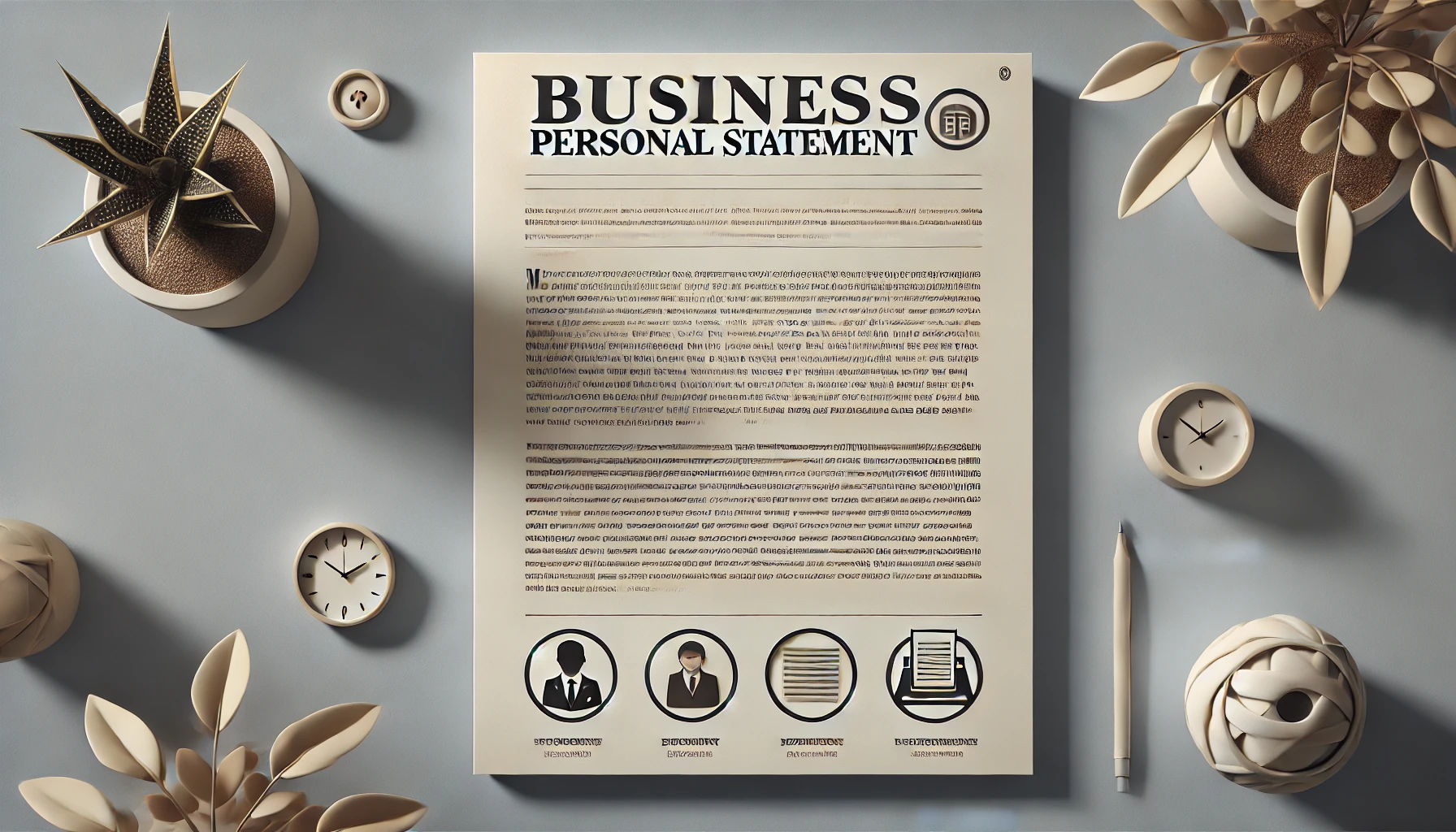A business personal statement is your chance to showcase your personality, skills, and ambitions. Whether you’re applying to a university, college, or a competitive job program, a well-crafted personal statement can set you apart from the competition. It’s not just about listing achievements—it’s about telling your story in a way that shows why you’re the perfect fit.
In this guide, we’ll cover everything you need to know about writing a business personal statement that captures attention and leaves a lasting impression. From structure to tips, we’ve got you covered.
What Is a Business Personal Statement?
A business personal statement is a written piece that explains why you’re passionate about business, highlights your achievements, and outlines your career goals. It’s often required for:
- University applications for business-related courses
- Professional programs or internships
- Scholarships and grants
The goal is to present yourself as a motivated, capable individual who’s ready to excel in the business world.
Why Is a Personal Statement Important?
Your personal statement is often the first impression you make on admissions teams or employers. It’s your opportunity to:
- Show your passion for business.
- Highlight your unique experiences and skills.
- Demonstrate your ability to communicate clearly and persuasively.
- Stand out from other applicants.
A strong personal statement can be the deciding factor in your application’s success.
How to Structure Your Business Personal Statement
A well-organized personal statement is easier to read and more compelling. Follow this structure to create a logical flow:
1. Introduction
- Start with a strong opening sentence to grab attention.
- Mention your interest in business and your motivation for pursuing it.
- Keep it concise—this is your “hook.”
2. Main Body
Divide this section into two or three paragraphs. Focus on:
- Your Experiences: Discuss relevant academic, work, or personal experiences. For example:
- Courses or projects that sparked your interest in business
- Work experience, internships, or entrepreneurial ventures
- Leadership roles or team projects
- Your Skills: Highlight transferable skills like problem-solving, teamwork, and time management.
- Your Achievements: Mention academic or professional milestones that demonstrate your potential.
3. Career Goals
- Explain your short-term and long-term goals.
- Show how the program or opportunity will help you achieve them.
4. Conclusion
- Summarize why you’re the perfect candidate.
- End with a confident statement about your excitement for the opportunity.
Tips for Writing a Great Business Personal Statement
1. Be Authentic
- Write in your voice. Admissions teams and employers want to get to know the real you.
- Avoid clichés like “I’ve always wanted to be a business leader.” Instead, share specific stories or moments that inspired you.
2. Tailor It to Your Audience
- Research the program or opportunity and mention why it’s a perfect fit for your goals.
- Use keywords from the application to show you’ve done your homework.
3. Keep It Focused
- Stick to the key points—don’t try to include everything about your life.
- Avoid irrelevant details or overly complicated language.
4. Show, Don’t Tell
- Instead of saying, “I’m a great leader,” provide an example of when you led a successful project.
- Use specific experiences to illustrate your skills and qualities.
5. Proofread, Proofread, Proofread
- Spelling and grammar errors can ruin an otherwise great statement.
- Read it aloud to catch awkward sentences and ensure it flows well.
- Ask a trusted friend, teacher, or mentor to review it.
Common Mistakes to Avoid
- Being Generic: Avoid vague statements like “I love business.” Be specific about what excites you and why.
- Overloading with Jargon: Keep your language simple and clear. You don’t need to impress with technical terms.
- Repeating Your CV: Your personal statement should complement your resume, not duplicate it.
- Exceeding the Word Limit: Stick to the word count to show you can communicate effectively.
Example of a Business Personal Statement
Here’s a brief example to inspire you:
“Growing up in a family of small business owners, I’ve always been fascinated by the strategies that drive success. During high school, I co-founded an online store that generated a 20% profit margin in its first year. This experience sparked my passion for entrepreneurship and taught me the importance of adaptability and customer focus.
As a business management student, I developed strong analytical skills through case studies and group projects. An internship with XYZ Company further honed my problem-solving abilities, as I assisted in streamlining their supply chain operations.
My ultimate goal is to lead a startup that combines sustainability with innovation. The business program at ABC University offers the perfect blend of theoretical knowledge and practical experience to help me achieve this dream. I’m excited to contribute my enthusiasm and dedication to the program.”
FAQs About Business Personal Statements
1. How long should a business personal statement be?
Most personal statements are between 500–750 words. Check the specific requirements for your application.
2. Can I use the same personal statement for multiple applications?
It’s better to tailor each statement to the specific program or opportunity. A generic statement may not make as strong an impact.
3. Should I include personal stories?
Yes! Personal anecdotes can make your statement more engaging and relatable.
4. How can I make my statement stand out?
Focus on unique experiences, show enthusiasm, and highlight what makes you a great fit for the opportunity.
5. Is it okay to mention weaknesses?
Yes, if you frame them positively. For example, discuss how you overcame a challenge and what you learned from it.
Conclusion
Crafting a compelling business personal statement is your chance to showcase your skills, experiences, and aspirations. By being authentic, focused, and specific, you can create a statement that sets you apart and opens doors to exciting opportunities.
Take the time to reflect on your journey, plan your structure, and polish your writing. With these tips, you’re well on your way to creating a standout personal statement that highlights your potential as a future business leader.

